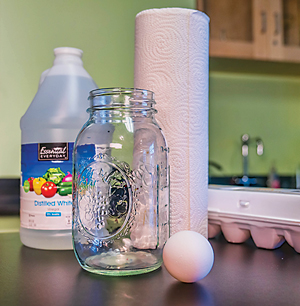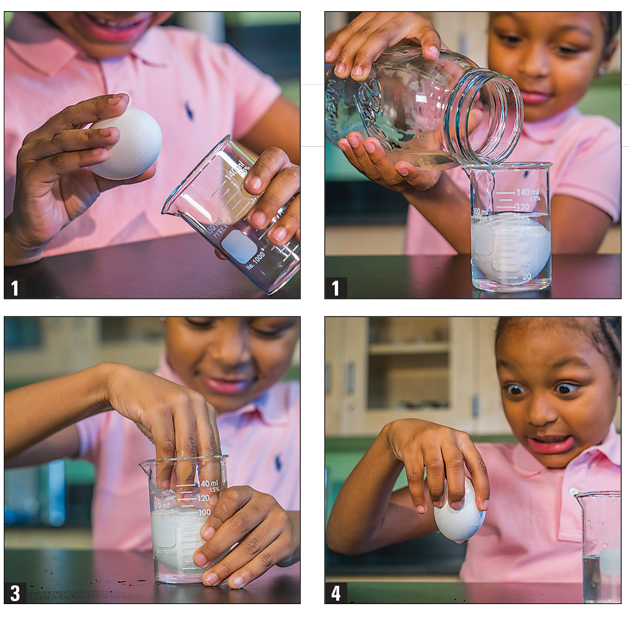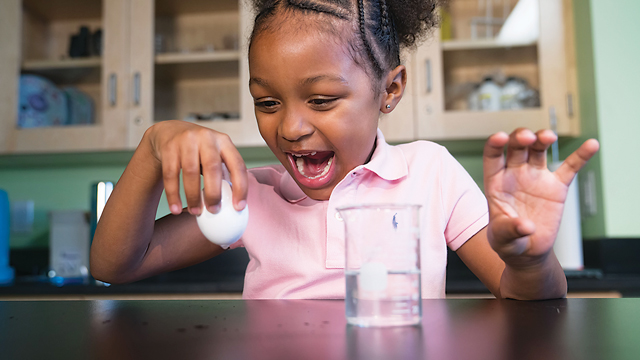Often, science experiments are used to help us learn about ideas or explain concepts, that, on the surface, might seem unrelated to the experiment.
For example, let’s look at what happens to the surface of teeth when you eat sugary foods. Have you ever wondered why you have to brush your teeth after meals? Or why your parents and the dentist are always talking about how too much sugar causes cavities? Cavities are holes in the teeth that are caused by something called tooth decay. Tooth decay is caused when the bad bacteria, which live in the plaque on your teeth, builds up on your teeth. These bad bacteria use the sugar you eat to make a strong acid. These acids demineralize your teeth by
dissolving the calcium in the enamel, the tooth’s protective tissue, and making your teeth vulnerable to cavities.
When you brush or at least rinse your mouth, it cleans off the acid-causing sugars and reduces the likelihood that the surface of your teeth will be attacked. Brushing and flossing also reduce the plaque that the bacteria like. Still want to skip out on that regular brushing? Let’s do science!

What you need:
• White vinegar
• Uncooked egg
• A glass or cup
• Paper towels

What you do:
1. Place an egg into a clear cup, and cover it with vinegar.
2. Let it soak for twenty-four hours.
3. Carefully remove it.
4. Make and record observations.
What happened to the egg’s shell? The egg shell that was once hard has been broken down by the vinegar, much like how tooth enamel is broken down by bacteria. The surface of the egg is now a tough membrane that is rubbery and might even bounce. Good thing that doesn’t happen to your teeth! (Be careful testing though – the egg might break!)





